The following are some thoughts I had today as I gleefully baked an apple cranberry pie for my husband’s birthday. Despite the fact that I was baking pie, the text mostly refers to baking bread, but I suppose that is fitting considering the title of this blog.
It is curious how the term “homemade” is so often tossed around. People often go home and make something and say that this is “homemade _____.” What they don’t say is that they used the bread machine, the food processor, and stuff from the frozen aisle at the supermarket. I think it is more than setting that can make something homemade. A home is not a place where machines are stored. Bread machines, mixers, food processors all are not necessary to a home. I think we commonly conceive of these things as tools. Making bread from scratch by hand seems insurmountable unless armed with the proper “tools.” What is odd about this thinking is that the tools are consuming tons of electricity in order to function. They are made mostly of plastic, all petroleum derivatives. They are complex, easy to break, hard to fix, take up tons of space, and consume tons of fossil fuels both in the way they are powered and in their very composition. Tools should simplify and allow one to have more control over what is happening. They should be efficient, and pleasant to use. These noisy, clunky, things come far from the true definition of a tool. What I view as the greatest loss from these kitchen machines is that they separate the person from the work he or she is doing. Rather than kneading the bread with your hands, you are turning on and off a switch. There is no process, only the start and beginning. Input and output.
When I make something with my hands I enjoy feeling the process at my fingertips. As I add more flour and knead dough I can feel it develop and change over time. Time, I think, is one of the more precious and valuable ingredients. Being able to witness time progress and something change or develop in time is truly magical, miraculous even. I want to be as close to that miraculous event as possible. I want my hands in it. I want its dust all over my palms. What is a prayer if there is not a little flour in between those hands?
Is there something holy about a thing being handmade? I feel there is. When I make something I get into a meditative state. I am relaxed and at ease. I feel blessed to watch the simple magic of yeast, heat, and the fruits of soil and sunshine become something to nourish myself and my husband. Making something by hand forces me to reckon with my time and space. It requires time to prepare things by hand – chopping rather than using a food processor, kneading rather than using a mixer. However, my time is not simply spent laboring away at the current baking endeavor. I am also spending time in one place, and that place happens to be my home. I am present in the house, and also located in a very public room – the kitchen. So while I am dedicating time to food preparations, I am also circumstantially spending time with whoever might be home at the moment. I am doing something that does not fully distract, for bread making includes mixing and kneading for somewhat long periods of time and frequent rests, so I am easily available for conversation. If no one is there, there is still something meaningful about the way I am spending my time, for a loaf of bread is not prepared for me alone. I am making that bread for my family. Time is being dedicated to the wellness and nourishment of my family. Do I feel these conditions make the act of bread baking a holy act? I believe that if given full attention and intention, yes, it can indeed be a holy act. A sort of prayer.
I feel it hard to ignore that I mentioned “intention” in the previous sentence. This I feel is one of the most important things in creating food. Food is always prepared with an intention. Maybe it’s intended for your family for dinner, maybe just for one, maybe for guests. No matter what, there is always an intended end for all food. I feel this intentionality of food is often overlooked. How, I ask you, how could anyone feed their child Kraft mac n’ cheese? What about those dinners with sauces derived from packets of mysterious powder? And Bisquick – as if real pancakes are any more difficult than the mix? The intention of food has become convenience and speed. But what are the consequences of those intentions being poured metaphorically onto our dinner plates. Oh, but do we even use real plates, or is tonight a plastic tableware night so it can all just be disposed of as immediately as possible?
Ugh, you can tell this really gets my button. But it is something I feel passionately about. I would quit my job if I couldn’t find time to cook a few good meals during the week. As I cook or bake I love to think about who the food is for. If I intend a meal or a loaf of bread for someone I care about than I want to reflect that in the manner that I create that meal. I suppose there is the all too cliché idea of cooking something with love. But, what exactly does that mean? I care about the person so I want them to enjoy what I make. I want it to be delicious to that person. I want it to be nourishing, so I want to make enough, maybe a little extra. I want it to be healthy so that person’s body is aided by my cooking. Maybe I’ll use organic ingredients so I know that it is not full with toxins. I only use ingredients I know are natural and meant to be consumed. And maybe I want it to be a little special, so I make it look pretty. All of these are such simple little things, but they are certainly not happening when you dump a blob of
I could go on, but I feel a need to stop myself here. There will, I hope, be more posts to follow exploring these ideas.
In the meantime, if you by any chance have read this far, feel free to comment.
All the best and have a good night.
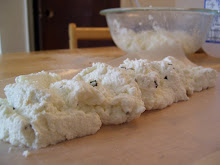
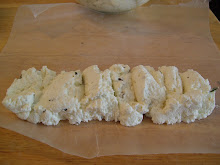
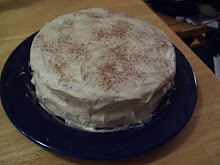
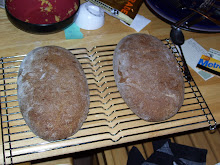
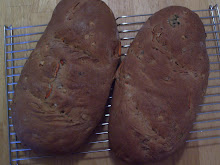
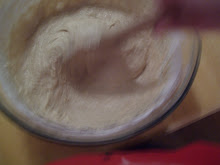
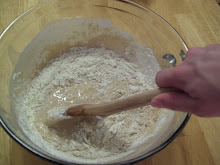
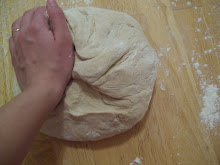
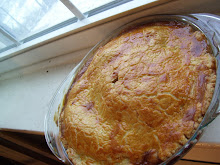



2 comments:
A wonderful post--and I completely agree, though I'm not a very good cook myself so I have to stick to simple dishes most of the time. Working in a restaurant, though, I'm often struck by the way people take food and its preparation for granted. For instance, personally, I would never bring my child to a diner-like restaurant. I grew up entirely on home-based (if not strictly "homemade") meals and never even went out to eat until I was in my teens. Now I see parents bringing their kids in, ordering them greasy burgers and french fries and then trying to bribe them to eat by offering them milkshakes as beverages and cookies for desert! I feel a pang of guilt and pity for the experience of healthy family meals at home that these kids grow up missing.
It's funny you mention the whole issue of plastic and how it's produced. Have you noticed these commercials now (I don't watch television, but every once in a while if I'm visiting family I'll catch some) advertising plastics as "fundamentally necessary" for "modern life"? How strange! Considering that most people probably don't give plastic and packaging a second thought, such commercials, aimed not at selling a particular product but at inculcating a "common sense" attitude about plastic, border on pure propaganda for the petrochemical industry, really.
Anyway, fascinating post. :) Keep writing--you have one reader hooked, at least.
ugh, I have noticed the plastic ads. I believe the phrase is: plastics make life possible, or something similar. Oi. And I didn't even get into all the toxicity associated with plastics...maybe another day
Post a Comment